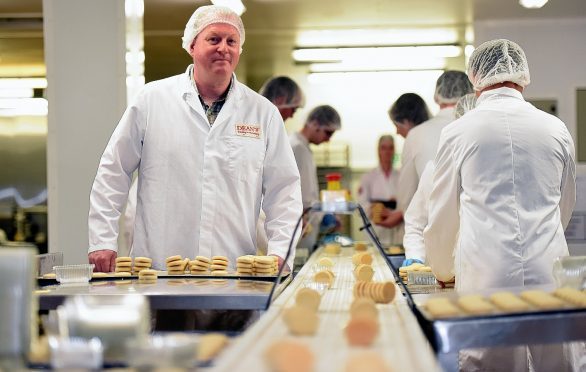Post-Brexit trade tariffs pose a “major risk” to the performance of Britain’s £28 billion food and drink sector, an industry body has warned.
A report from the Food and Drink Federation (FDF) said the introduction of levies on existing EU trade would increase pressure on manufacturers already squeezed by higher import costs linked to sterling’s weakness.
The study stated: “For many, the costs associated with any tariffs being imposed on existing trade with the EU represent a major risk on margins – a risk that is exacerbated for those with cross-border integrated supply chains in the industry.”
The warning was echoed by the managing director of a leading north-east food producer yesterday.
Bill Dean, of shortbread maker Dean’s of Huntly, said: “It is going to have an impact on export sales. It’s not going to be the same for every business and will depend on the degree which companies are trading with Europe.”
Mr Dean said the price of commodities remained a “major issue” for the industry, adding that his own business had seen a 300% increase in the cost of its key ingredient, butter, since the start of the year.
The report said a small number of businesses could benefit from lower costs by importing raw materials from markets outside the 27-nation bloc.
But it added efforts by firms to prepare for life outside the EU single market and the Customs Union will be “extremely costly and prone to errors” unless the government draws up a clear plan.
Development agency Highlands and Islands Enterprise (HIE) said it was focusing on helping companies “meet the challenges and exploit opportunities arising from Brexit.”
Elaine Jamieson, HIE’s head of food and drink, said: “Food and drink is one of the largest growth sectors in the Highlands and Islands and makes a significant contribution, economically and socially. Exporting is hugely important to the sector and the EU is significant in terms of global markets.
“Feedback from businesses and our collaboration with the wider Scotland Food and Drink Partnership will inform how we best continue to support businesses through the uncertainties.”
Nick Hudson, communications director at Scotland Food and Drink, said the report reinforced the body’s belief that there are “significant growth opportunities” for the food and drink sector in Scotland.
He added: “Faced with business uncertainty, now is the time to build on our uniquely collaborative approach between business and government to continue the growth in this sector.”
